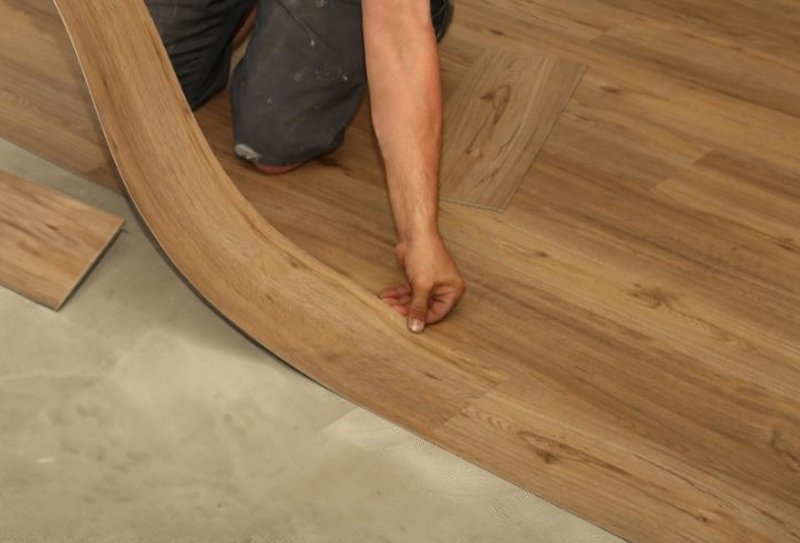Epoxy Flooring vs Vinyl Flooring
Investing in the wrong type of flooring for your commercial and industrial facilities can have long-term consequences. Many business owners and managers of commercial properties have difficulties deciding which flooring solution to choose. Of course, they are all looking for a product that can provide the durability they need. Epoxy flooring vs vinyl flooring is a common discussion topic among commercial and industrial property owners. Deciding which to use can be difficult. Although you might initially think these are completely different options, they have a lot in common, which can be confusing.
This article will help you learn more about all the advantages and disadvantages of epoxy and vinyl flooring, and hopefully, you will be able to decide which one to choose for your business facility.
The Installation Process
Vinyl flooring should be installed at a particular temperature and on a smooth surface; otherwise, poor results will occur, degrading the manufacturer’s warranty. On the other hand, epoxy flooring can withstand a wide range of temperatures and is more tolerant of rougher surfaces during installation.
Adhesion and Bonding
While vinyl floors depend on heat-welded seams and adhesives, epoxy reacts directly with the concrete surface below. Because of this, issues with alkaline moisture vapor on concrete surfaces are a common problem with vinyl flooring, causing the bond to break. However, with epoxy, you will not have to worry about this because the direct reaction with the concrete below eliminates the chances of cracks, peeling, and separated seams.
Sanitation and Hygiene
Since these two flooring options are very common in food preparation environments, it is essential to know that curls and cracks on vinyl flooring can create gaps that are suitable grounds for bacteria and microbial proliferation. Those gaps and cracks usually appear when vinyl flooring is exposed to high temperature, heavy traffic, or disinfectants, or when the installation is not done correctly. Because of that, epoxy floors represent a stable base that is resistant to spills and liquid, and since they do not soak in moisture, they do not facilitate bacteria and germ growth.
Maintenance of Epoxy Flooring vs. Vinyl Flooring
Proper maintenance will enhance your floors’ longevity, so knowing how to clean them without damaging them is essential. Sanitation of epoxy is a breeze since this smooth surface does not soak spills and stains. Epoxy can last decades without peeling or cracking if installed properly with high-quality procedures and products. Here at Diamond Grind commercial and industrial flooring, we use proven-quality products from Hychem, EpiMax, Flowcrete, Masterbuilders, and other top-line suppliers. Please reach out to us as we are happy to give you personalised help with your perfect floor solution.
Vinyl flooring, however, can lose its sheen if you use commercial liquid cleaners. If you have this type of flooring in a high-traffic area, it is recommended to use pH-neutral cleaning products, but unfortunately, they will probably not be able to keep up with the amount of tracked-in dirt.
Considering all this, most business owners invest in epoxy floors instead of vinyl ones. However, vinyl floors can still be a reasonable choice for some commercial properties, depending on their purpose, traffic volume, and other factors.
Cost-Effectiveness
One of the critical factors that will determine whether someone will choose epoxy or vinyl flooring is its cost-effectiveness. In business, every dollar counts, and it makes sense that, as a business owner, you will want to spend your money wisely.
Vinyl flooring cannot be refinished. In case of damage, the only thing you can do is to remove the damaged section and install a replacement completely. This will almost always be visible and problematic. It will probably interrupt your business and cause downtime, plus the replacement is usually more expensive per square meter than the initial installation.
When cleaned properly, maintenance on an epoxy floor such as one made with epimax is hardly ever needed for the lifespan of the floor, which can last up to 20 years, depending on the environment.
Professional Installation
Everything we have mentioned applies only when professional concrete preparation and flooring installation is conducted. We cannot say which surface wins the battle for you, epoxy or vinyl flooring. When considering epoxy flooring vs vinyl flooring, you must choose according to your needs, budget, and space preferences. It is fair to say epoxy is a far superior surface, but cost is a factor to consider.
Diamond Grind
No matter which one of these flooring options is your choice, you will need a team of experts who can remove layers of old flooring, level concrete and ensure that it is even, and, in the end, provide professional installation. Diamond Grind Commercial and Industrial flooring can help you as we provide quality service for business facilities of different types and sizes. Feel free to contact us today to learn more about our unmatched flooring solutions.

✅ Let's Talk — DiamondGrind
100% free consultation — no commitment required.
